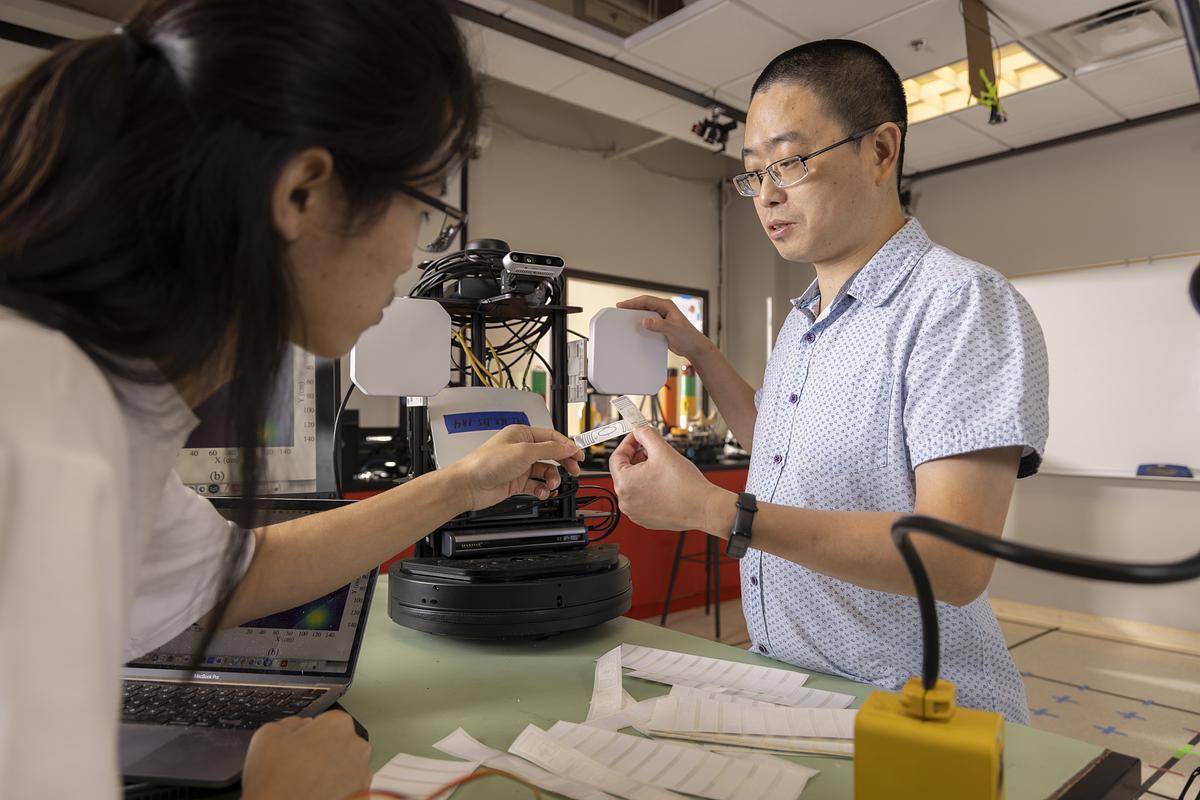

KENNESAW, Ga. | Sep 20, 2023

Zhang, who has a background working on robotic systems and is interested in how Radio Frequency Identification (RFID) technology can improve our daily lives, thought there might be a way to combine artificial intelligence and clothing security tags to help find a solution.
His three-year project, funded with a $180,000 grant from the National Science Foundation (NSF), will study sleep and sleep disorders. The study will use RFID tags attached to the inside of clothing that can capture body motions. Each RFID tag has a unique identity that can recognize each of the body’s joints. Artificial intelligence will be used to sift through and analyze the data, Zhang said.
“Think of the tag you see on a T-shirt you purchase or a tag on your luggage when you fly,” said Zhang. “It’s not intrusive, but it gives you information.”
Zhang, who teaches in the Southern Polytechnic College of Engineering and Engineering Technology (SPCEET), will collaborate on the study with Auburn University professor Shiwen Mao, whose study has been funded with an additional $240,000 from the NSF.
As part of the study, Zhang said there are also plans to investigate how to help prevent health problems in the elderly. The research pertains, in particular, to elders at high risk of falling by detecting abnormal body movements.
“We aren’t collecting any private information,” Zhang said. “The person’s age or gender isn’t known. But it will collect information about your joints. Plus, the tags allow us to capture enough information without disrupting the sleep. You can sleep normally.”
Zhang’s research will be to gather the data on joint movements for later research on the connection between disease in the body.
“We hope the success of this project can enable us to develop a new tool for sleep disease diagnosis and monitoring persons needing preventative care,” Zhang said. “And it was all inspired by my friend and his son.”
– Amanda Cook
Photos by Darnell Wilburn
A leader in innovative teaching and learning, Kennesaw State University offers undergraduate, graduate, and doctoral degrees to its more than 51,000 students. Kennesaw State is a member of the University System of Georgia with 11 academic colleges. The university's vibrant campus culture, diverse population, strong global ties, and entrepreneurial spirit draw students from throughout the country and the world. Kennesaw State is a Carnegie-designated doctoral research institution (R2), placing it among an elite group of only 8 percent of U.S. colleges and universities with an R1 or R2 status. For more information, visit kennesaw.edu.